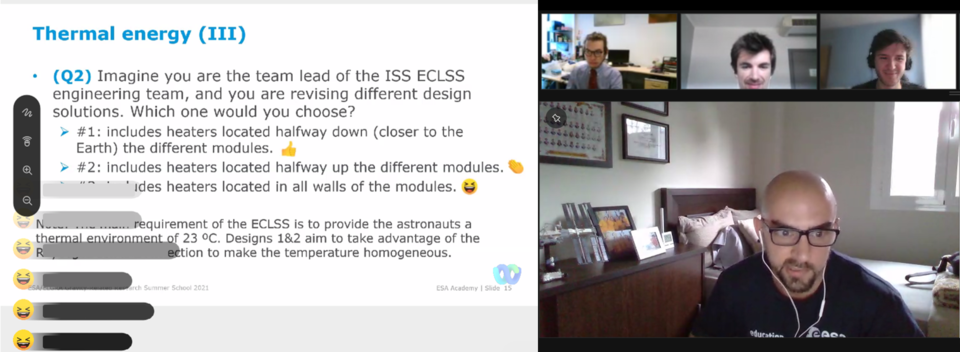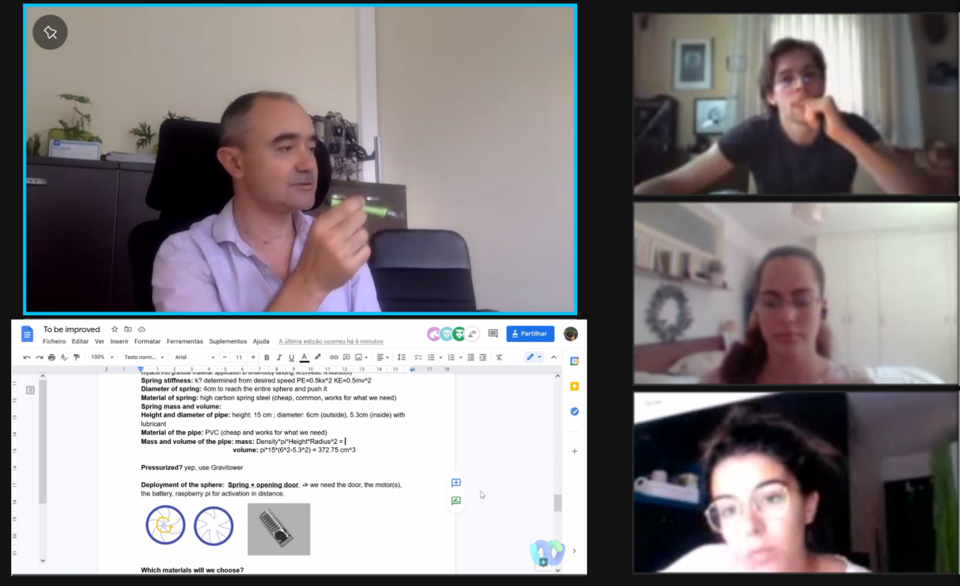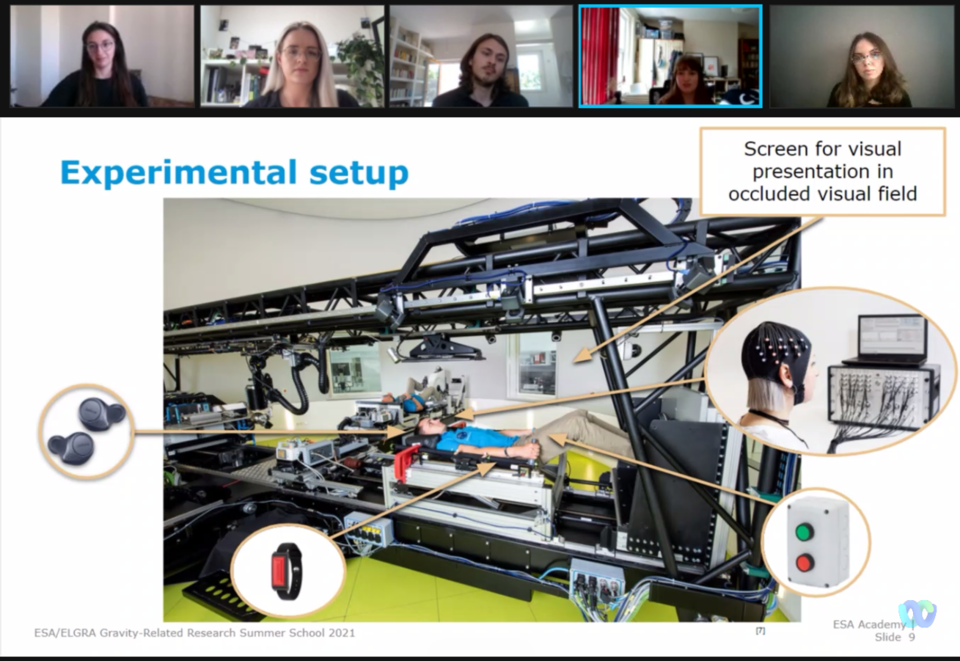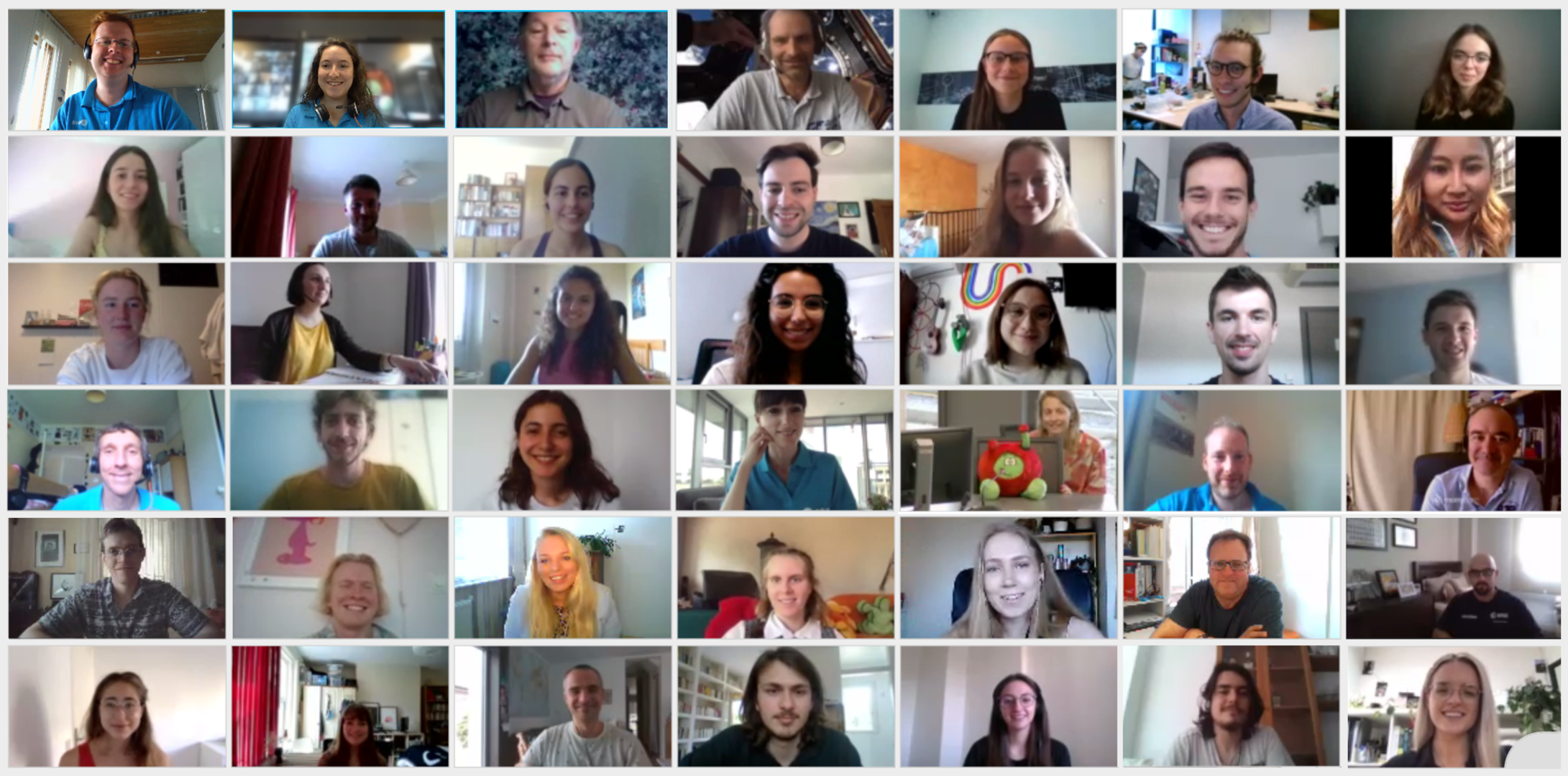ESA and ELGRA collaboration results in successful Gravity-Related Research Summer School 2021
ESA’s Education Office and the European Low Gravity Research Association (ELGRA) have successfully teamed up to organise the ESA/ELGRA Gravity-Related Research Summer School 2021. Running from 22 June to 2 July 2021, the course was held entirely online due to the ongoing COVID-19 pandemic. Logging on were 31 university students from 14 different ESA Member States and Slovenia, hosted by a team of international experts from both ESA and ELGRA.
The Summer School’s goal was to offer an overview of current research under microgravity and hypergravity conditions in both Life and Physical Sciences, as well as explaining the benefits of performing research and technology demonstrations in altered gravity.
The very first day set the pace with a series of lectures on the key aspects of gravity, including an overview of current gravity-related research and the experimental platforms available to simulate altered gravity. This was followed by a lesson on how to develop gravity-related experiments, highlighting the multitude of aspects a researcher needs to keep on top of, from identifying a novel research question and select the best suited experimental platform, to data analysis and communication of results.

“We have been involved in a unique learning experience,” said a Romanian student from the Technical University of Madrid (UPM), “collaborating with students with diverse backgrounds while international experts shared their first-hand experience. All in all, altered gravity research may be complex and extensive, but I am sure the ESA/ELGRA course will help our ideas take off.”
Over the following several days, the schedule was filled with fascinating lectures on a wide variety of topics, including:
- Gravity Machines and Animal Models
- Mass and heat transport in fluids in microgravity
- Space Medicine
- Use of Microbes to Support Humans in Space
- Technology Demonstrations in Microgravity
- Signalling Mechanisms of Bone Loss in Weightlessness
- Space and the Vessel
- Multiphase Thermal Management Research in Microgravity
- EVA Training

These were supplemented by talks given by former students of ESA Academy’s hands-on programmes, who enthusiastically shared stories of their experiences along with tips and tricks.
The Summer School’s second week was mostly earmarked for team projects. Working in small groups, the students were challenged to design their own gravity-related research experiment and investigate its feasibility. Each team was assigned two tutors from relevant fields of study. The tutors supported the students in their endeavours, offering guidance and the benefit of their real-life experience. The topics chosen by the students were both fascinating and diverse:
- Understanding crystal growth in microgravity to enhance optoelectronic properties of solar cell materials using ISS ICE Cubes.
- Determining surface properties of the ground from a single acceleration collision during landing on an asteroid using Gravitower.
- Biomining using ISS KUBIK.
- Hypergravity effect on neurocognitive activity using Short Arm Human Centrifuge.
- Effect of altered gravity on white adipose tissue using Large Diameter Centrifuge and Random Positioning Machine.
- Cardiorespiratory fitness evaluation in microgravity using Parabolic flights.
“Being part of a multidisciplinary team to create a gravity-related research project was both challenging and rewarding as I learned so much from my peers and mentors about their respective fields,” explained an Irish student from Leiden University. “I am grateful to ESA Academy for organising this summer school and helping me realise the exciting gravity-related career possibilities available for me to pursue after my studies.”

Team project time was punctuated by additional workshops on project management and systems engineering & requirements definition. Students quickly realised the importance of these sessions, aiding them in the successful completion of their projects, and ultimately boosting their chances of obtaining the best possible experimental data.
The students were then delighted by a guest lecture given by former ESA astronaut Jean-Francois Clervoy. He captivated his audience with stories of his past adventures and views on the future of human spaceflight. This inspired the students and motivated them to push on with their projects, whilst also keeping in mind future career aspirations.
The Summer School’s final day was given to the team presentations. Students explained their projects to a panel of tutors, who were very impressed with the quality of the work, especially given the short timescales.
Upon completion of the summer school, a Spanish student from the University of Edinburgh summarised their thoughts: “I applied for this programme to get an idea of what kind of research is being performed in microgravity/hypergravity, and hopefully get some inspiration for future research projects. The ESA/ELGRA research summer school has been fantastic to get creative and develop new ideas, and learn from the experts and my teammates. The range and diversity of people and disciplines made every day interesting and exciting, and I learned so much about areas that I had never even thought about before! It was an excellent opportunity to learn not only about how rigorous, challenging and rewarding putting a project together is, but also to be inspired and learn how to work together as a team and how to be efficient. And of course, the talk with the astronaut just made me want to become one too!”
To find more information about upcoming ESA Academy training opportunities, please check: https://www.esa.int/Education/ESA_Academy/Portfolio_of_ESA_Academy_training_sessions
Contact: tlp@esa.int


